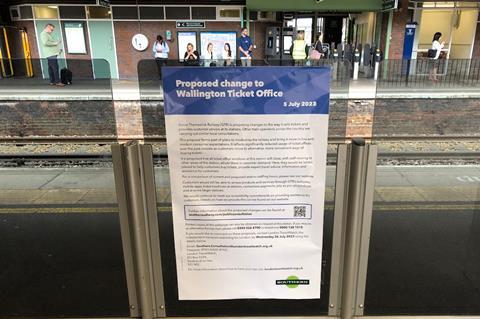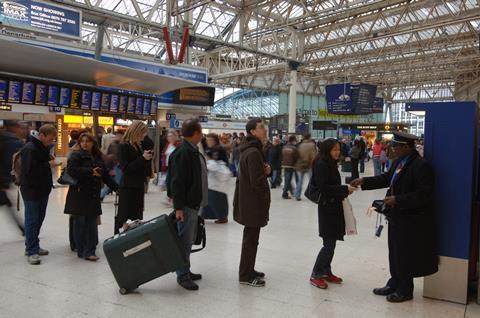
UK: Transport Focus and London TravelWatch have so far received more than 100 000 responses to the public consultation on proposals to close the majority of ticket offices in England.
The consultation closes at 23.59 on July 26. ‘There’s still time to respond to the consultation if you haven’t done so yet’, emphasised Transport Focus CEO Anthony Smith on July 20. ‘We want to hear from everyone, so we can consider the needs of all station users and local communities.’
The watchdog said it would scrutinise industry proposals in detail to inform its response, considering issues such as whether a station would continue to be staffed, accessibility, alternative options for buying tickets and whether passengers would continue to have access to facilities such as lifts, waiting rooms and toilets.
Meanwhile, the House of Commons Transport Committee has re-opened its call for evidence as part of its inquiry into Accessible Transport.
Written evidence is sought by August 16 addressing the effect of the proposed changes on disabled people and travellers with access needs, and what train companies and the government need to do to ensure that any new arrangements do not reduce access to rail travel.
Consultation criticism

Labour’s Shadow Transport Secretary Louise Haigh said ‘ministers are dodging accountability’ with the changes being co-ordinated by the Rail Delivery Group, and added that government claims on job security, ticketing and technology were ‘falling apart under scrutiny’.
Haigh said the 21-day consultation period was too short, accessibility had not been considered and some products were not available from ticket machines.
The Urban Transport Group of city region transport authorities said the approach was inconsistent, and it also had concerns around the consultation process.
‘City region transport authorities need to be fully involved in the decision making process’, insisted UTG director Jason Prince. ‘Our role in overseeing, and setting the overall strategy for, integrated transport networks in our areas means we need a seat at the table.’
Independent campaigning organisation Railfuture said it had found ‘a morass of inconsistency’ in the proposals and ‘little ambition to get passengers to use the railway’.
Neil Middleton, Railfuture lead on fares, said ‘there were many open goals that were missed to make best use of what already exists – Chiltern’s ability to issue any ticket from a Welcome Desk, Northern’s ticket vending machines issuing more types of tickets; East Midlands Railway having a comprehensive ticket issuing machine for their guards – all these could have been selected for much wider deployment and, if together, were to become standard practice across the whole of the national rail network, then current service level to passengers could have been delivered in a different way.’



